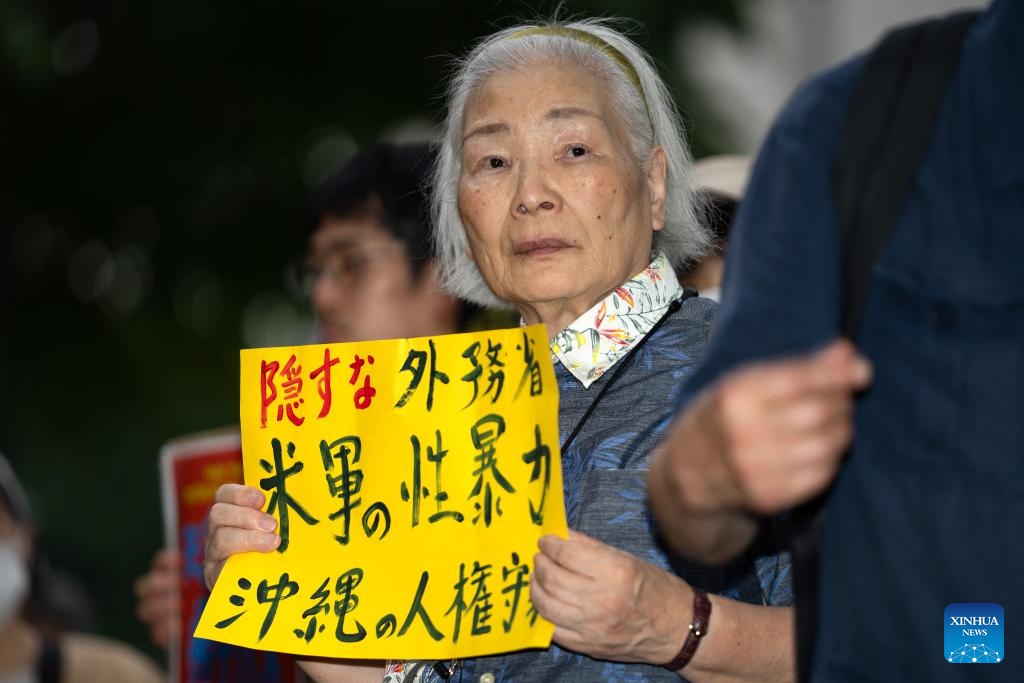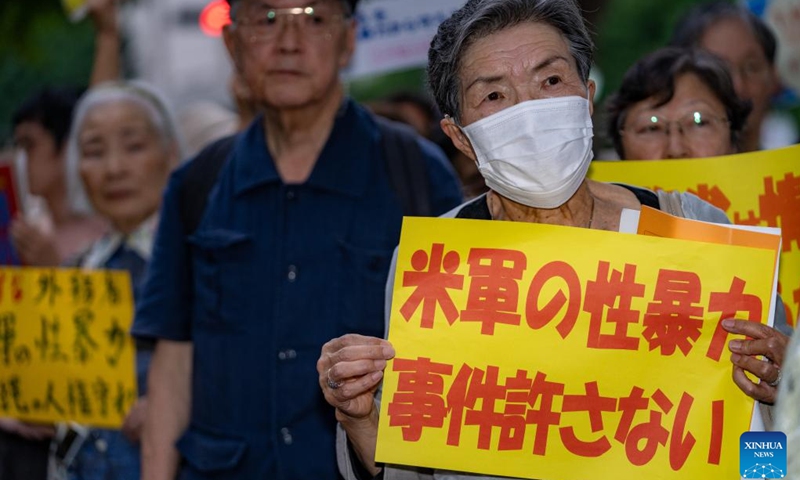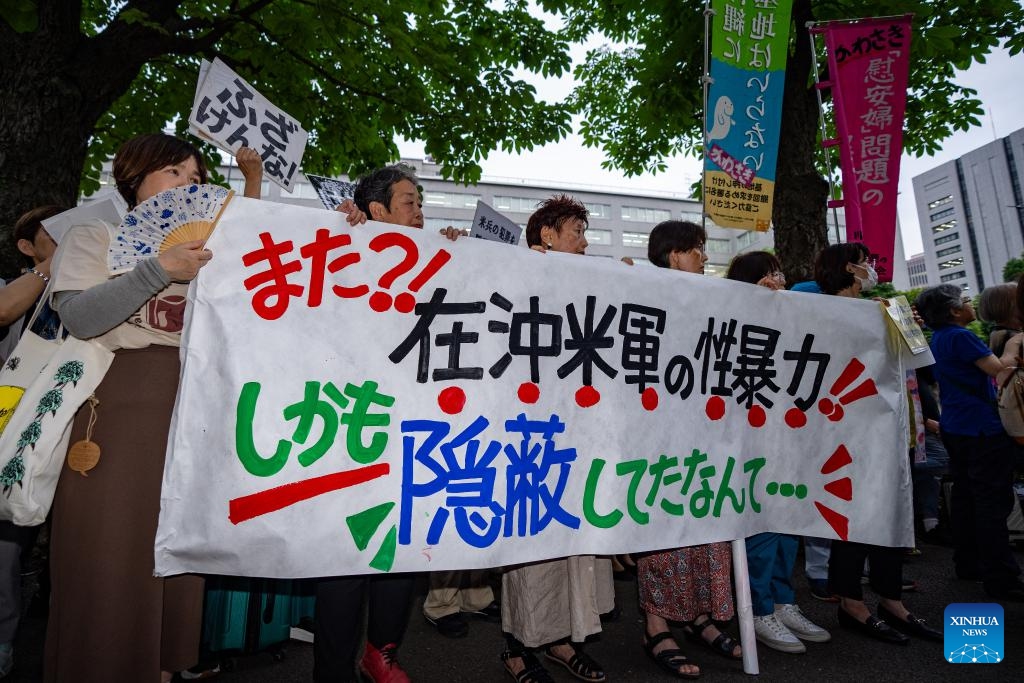
People gather in front of the country's Ministry of Foreign Affairs to protest against the Japanese government for concealing the alleged sexual assault cases involving U.S. military personnel in Japan from the public in Tokyo, Japan, July 2, 2024. (Photo: Xinhua)

People gather in front of the country's Ministry of Foreign Affairs to protest against the Japanese government for concealing the alleged sexual assault cases involving U.S. military personnel in Japan from the public in Tokyo, Japan, July 2, 2024. (Photo: Xinhua)

People gather in front of the country's Ministry of Foreign Affairs to protest against the Japanese government for concealing the alleged sexual assault cases involving U.S. military personnel in Japan from the public in Tokyo, Japan, July 2, 2024. (Photo: Xinhua)

People gather in front of the country's Ministry of Foreign Affairs to protest against the Japanese government for concealing the alleged sexual assault cases involving U.S. military personnel in Japan from the public in Tokyo, Japan, July 2, 2024. (Photo: Xinhua)
Hundreds of Japanese citizens have gathered here in Tokyo to strongly protest against the Japanese government for concealing the alleged sexual assault cases involving U.S. military personnel in Japan from the public.
Over 350 protesters gathered in front of the Ministry of Foreign Affairs in the heart of Tokyo to express their outrage over the silence of the government on Tuesday evening, wielding placards and banners that read "Silenced Cries of Okinawan Girls," "Restore Dignity to Okinawan Women," and "No More Gov't Cover-Ups of U.S. Troop Crimes."
According to local media reports, a 21-year-old U.S. Marine in the southernmost Japan prefecture of Okinawa has been indicted on charges of nonconsensual sexual intercourse resulting in injury in May, following the indictment of a U.S. Air Force member for the alleged kidnap and sexual assault of a girl under 16 in December.
The Japanese government, however, did not disclose the cases until local media exposed them at the end of June, sparking widespread anger across the nation.
"The Japanese government, especially the Ministry of Foreign Affairs, knew it but chose to remain silent. This is undemocratic. They are ignoring the people of Japan, the women of Japan, and the people of Okinawa," condemned Mizuho Fukushima, head of the opposition Social Democratic Party, during her speech at the protest.
"While claiming to protect the victims, the government is in fact sheltering the offenders," criticized Suzuyo Takazato, leader of an Okinawan civic group.
Hatsuko Aoki, a 76-year-old protester from the Okinawan city of Nago, could barely hold back her anger when recalling witnessing her elders being threatened by U.S. military men during her childhood.
"As long as U.S. military bases remain in Japan, such incidents will continue to take place," bellowed the elderly citizen.
"I can't forgive the government for concealing the U.S. military sexual assault cases," Aoki told Xinhua, condemning the Japanese government for colluding with the U.S. military to conceal these crimes, not only to manipulate the election results but also to suppress protests against the construction of U.S. military's new Henoko base in Japan.
In the mid-June Okinawa Prefectural Assembly elections, the ruling Liberal Democratic Party (LDP) and its coalition partner, Komeito, who support the relocation plan of the U.S. Marine Corps Air Station Futenma, gained a majority for the first time in 16 years.
Representatives from multiple civil groups at Tuesday's protest stressed that if the assault cases had been disclosed before the elections, the LDP would have struggled to secure a majority, indicating ulterior motives of the government.
Amid overcast skies and drizzly rain, many female citizens brought bouquets to the site to show solidarity with the victims of the assaults. Among them was Rei Saito, who came to express her empathy as a young woman.
"What's even more unforgivable is that the Okinawa police didn't report the cases to the prefectural government. They seem to believe they can act with impunity, a trend of which is becoming more blatant," she told Xinhua.
Okinawa hosts 70 percent of all U.S. military bases in Japan while accounting for only 0.6 percent of the country's total land area. Crimes committed by U.S. service members and nonmilitary personnel have been a constant source of grievance for locals.
Tragedies continue to occur decades after massive protests in Japan when in 1995 a 12-year-old girl was raped by three U.S. servicemen. "Okinawans do not know how much similar harm they have to endure for the Japanese government," a protester lamented.







